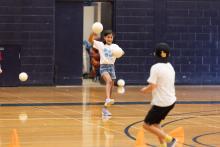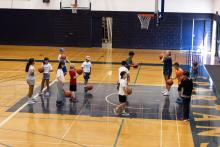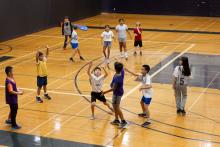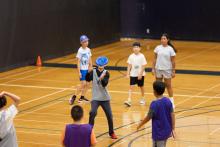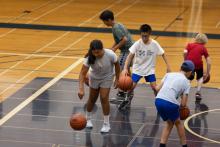All Sport – Learn to Train
Using the Sport for Life framework and taught by leaders with coaching, teaching, and playing experience, children learn the foundational building blocks of skills and knowledge needed to excel at any sport and to move their bodies with confidence and ease. This is all done in a fun and engaging environment with focus on physical literacy.
Campers will be introduced to a wide variety of skills and sports throughout the week. Sports that may be used but not limited to are: basketball, volleyball, pickleball, kickball, and soccer. Each day includes a short Bible story, and each participant receives a t-shirt (one t-shirt, per summer, per child).
Cost
- 5-day camp: $242.88
- 4-day camp: $194.32
Weeks Offered (2025)
Monday, July 7–Friday, July 11
Monday, July 14–Friday, July 18
Monday, July 21–Friday, July 25
Monday, July 28–Friday, August 1
Tuesday, Aug. 5–Friday, Aug. 8 (4 Day Week)
Monday, Aug. 11–Friday, Aug. 15

